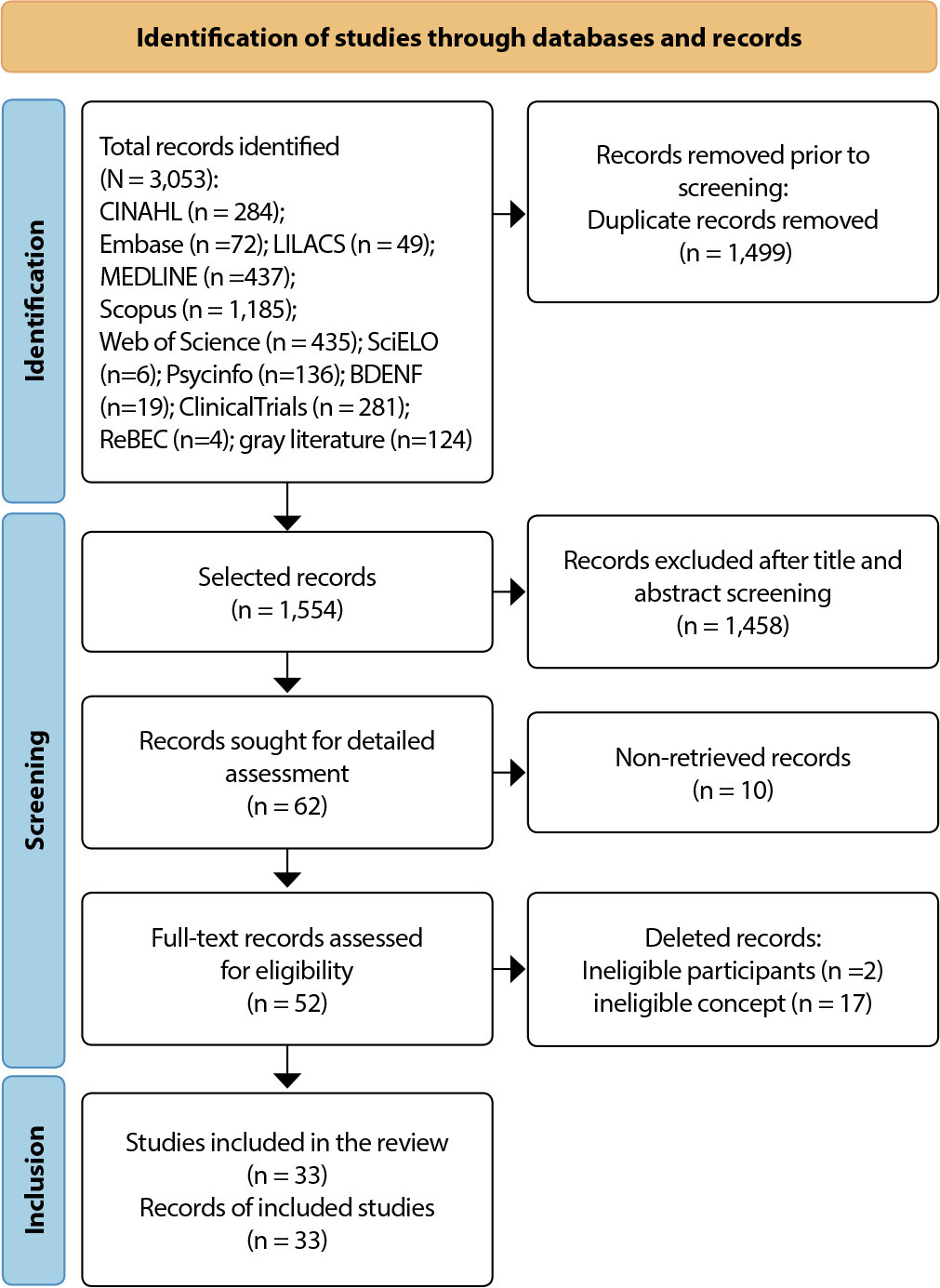-
REVIEW
Educational interventions for cervical cancer prevention: a scoping review
Revista Brasileira de Enfermagem. 2023;76(5):e20230018
11-27-2023
Resumo
REVIEWEducational interventions for cervical cancer prevention: a scoping review
Revista Brasileira de Enfermagem. 2023;76(5):e20230018
11-27-2023DOI 10.1590/0034-7167-2023-0018
Visualizações0ABSTRACT
Objectives:
to identify, map and describe characteristics of educational interventions for cervical cancer prevention in adult women.
Methods:
a scoping review conducted on eleven databases and the gray literature, including studies that described educational interventions aimed at preventing cervical cancer in adult women.
Results:
thirty-three articles with 151,457 participants were analyzed. The most used educational strategies were participatory discussions and educational leaflets. Most of the interventions took place in a single session, ranging from 40 to 60 minutes. The most used theoretical model in interventions to improve women’s compliance with Pap smear was the Health Belief Model.
Conclusions:
group discussions, lectures and educational brochures can increase knowledge and reduce barriers to cervical cancer prevention. Theory-based and culturally sensitive interventions can have a positive impact on women’s health.
Palavras-chave: Health EducationMass ScreeningPapanicolaou TestPrimary Health CareUterine Cervical NeoplasmsVer mais
-
ORIGINAL ARTICLE
Cervical cancer: knowledge, attitude and practice on the prevention examination
Revista Brasileira de Enfermagem. 2019;72(suppl 3):25-31
12-13-2019
Resumo
ORIGINAL ARTICLECervical cancer: knowledge, attitude and practice on the prevention examination
Revista Brasileira de Enfermagem. 2019;72(suppl 3):25-31
12-13-2019DOI 10.1590/0034-7167-2017-0645
Visualizações0ABSTRACT
Objective:
to evaluate the knowledge, attitude and practice of women on the cervical-uterine cancer screening and to investigate their association with sociodemographic variables.
Method:
a cross-sectional study, carried out from July to September 2015, with 500 women enrolled in the Basic Health Units of the Health District V, of the city of Recife-PE. For data collection, a semi-structured form was used. In statistical analysis, the Chi-square test and Fisher’s Exact Test were applied and, in the multivariate analysis, the Poisson model and Wald statistic.
Results:
the prevalence of adequate knowledge, attitude and practice was 35.2%, 98% and 70.6%, respectively. Adequate knowledge was associated with having no children, having a family income of two minimum wages and Spiritist/Afro-Brazilian religion.
Conclusion:
women carry out the examination, deem it necessary, but do not have adequate knowledge, which demonstrates the need for educational actions by nurses and other health professionals.
Palavras-chave: Knowledge, Attitudes and Practice in HealthNursingPapanicolaou TestUterine Cervical NeoplasmsWomen's HealthVer mais



